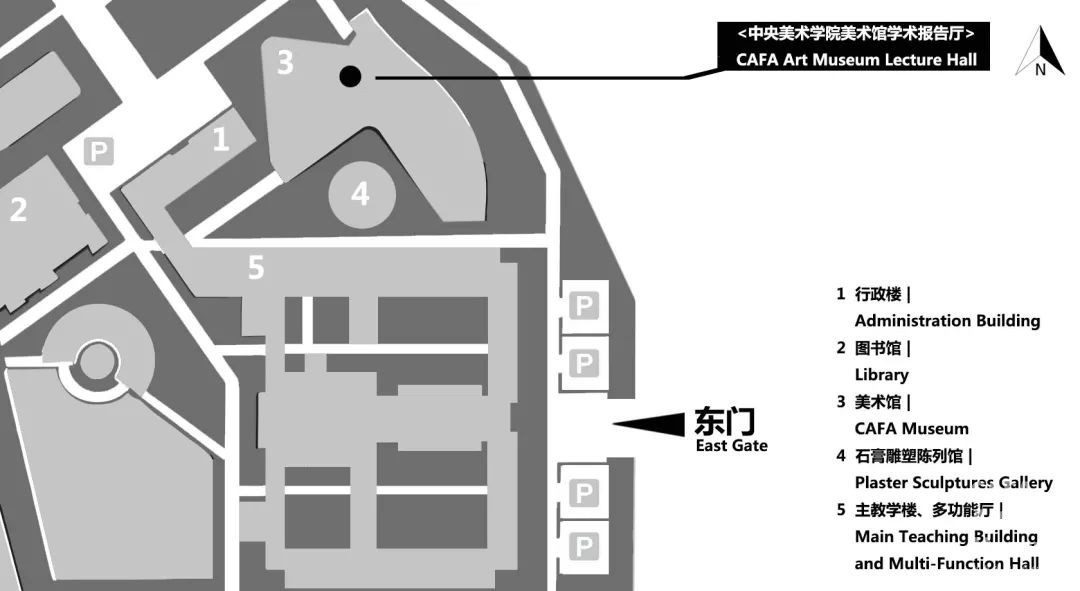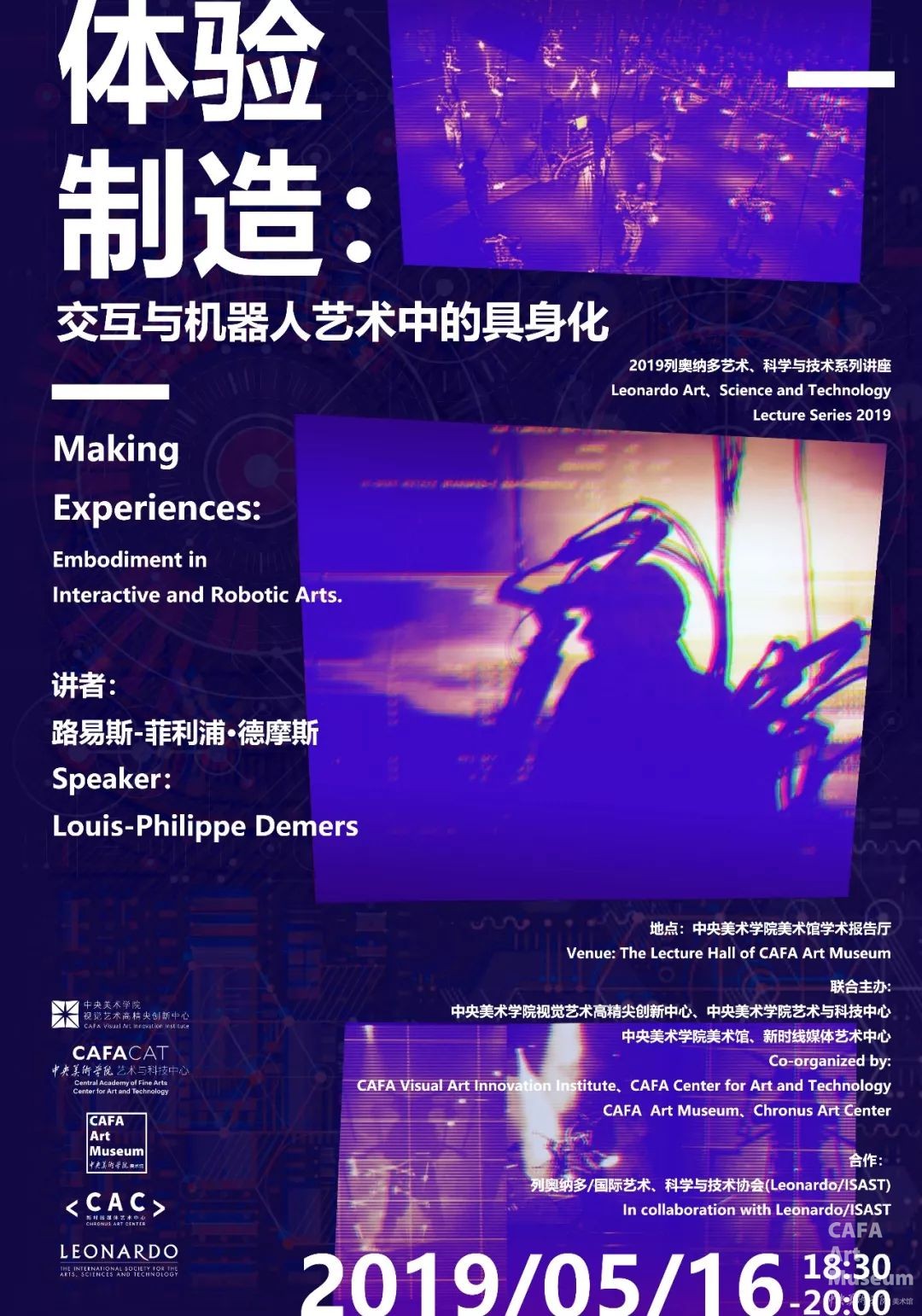

2019 列奥纳多科学、艺术与技术系列讲座
体验制造:交互与机器人艺术中的具身化
Making Experiences: Embodiment in Interactive and Robotic Arts
讲者:路易斯-菲利浦·德摩斯(Louis-Philippe Demers)
日期:2019年05月16日 周四
时间:18:30-20:00
语言:英文(配中文现场翻译)
地点:中央美术学院美术馆学术报告厅
联合主办:中央美术学院视觉艺术高精尖创新中心、中央美术学院艺术与技术中心、中央美术学院美术馆、新时线媒体艺术中心
合作:列奥纳多/国际艺术、科学与技术协会
关于讲座
此次讲座路易·菲利浦·德摩斯将介绍其在艺术探索中与系统、空间以及机器人的相关经验。他将讨论数字/电子媒介中身体的体验,更关注其物理性和模拟性,而非只看到虚拟性和数字性。
讲座将探索具身化令人意外的广泛含义,关注从生态到社会、观众认知视角到机器人介质之视角这几个具身化的层面。
基于因果规律与有生性(animacy)的机器人行为感质(qualia)是多层次、多面向的。并且,它来自于一系列从运动物体之形态到其情景性(situatedness)所同时构成的信号。物理空间和物品具有物质存在性,而观众也与它们同享着这一世界。我们的身体不仅在空间之中,它就是空间的体现。这不只是指向有形界面以及沉浸式空间,同时也创造了一个具有贡献价值的文化语境作为体验的组成部分。
我们与舞台上的表演者分享生物、社会和文化体验,并且认同这些体验。现象学家和剧院理论家称其很大程度上基于我们体验式的身体。当我们将人工造物不只注入到舞台上,同时默默注入到人类社会景象中时,发生了什么呢?
在这一系列调研中,德摩斯开始发展涉及单个身体性体验的作品,这些体验包括被机器人抚摸—— “盲眼机器人”(The Blind Robot)、被连身机器人(exoskeleton)控制 —— “地狱神曲”(Inferno)、将机器与人类的本体感觉(proprioception)结合——“重复”(Repeat)。
这些激进的碰撞发生在划分着人与机器的零界点上,迫使观众去(重新)思考人类的身体并(重新)探索具身化的体验。
关于讲者

新加坡南洋理工大学媒体艺术学院副教授。路易斯-菲利浦·德摩斯的主要制作大型的装置和演出。他参与了70多个艺术和舞台制作项目,并建造了超过375台机器。德摩斯的作品曾在许多主要场地展出,比如巴黎市立剧院、Expo 1992和2000、Sonambiente、ISEA、Siggraph以及Sonar等。他在奥地利电子艺术节上获得过六次提名和一次荣誉奖,还获得过Vida 2.0一等奖、Vida 12.0和15.0的提名奖、两次日本媒体艺术节的评审团推荐奖、Lightforms 98的互动奖以及Devolution的六个奖项(其中包括两个Helpmann奖)。德摩斯拥有普利茅斯大学的机器人表演博士学位。他曾是卡尔斯鲁厄艺术学院的教授,隶属于世界著名的德国卡尔斯鲁厄艺术与媒体中心(ZKM)。之后,德摩斯加入了南洋理工大学(NTU)的互动与娱乐研究中心,并在那里担任艺术、设计和媒体学院的副教授。德摩斯现在是昆士兰科技大学(QUT)创新发明系教授和创意实验室主任。
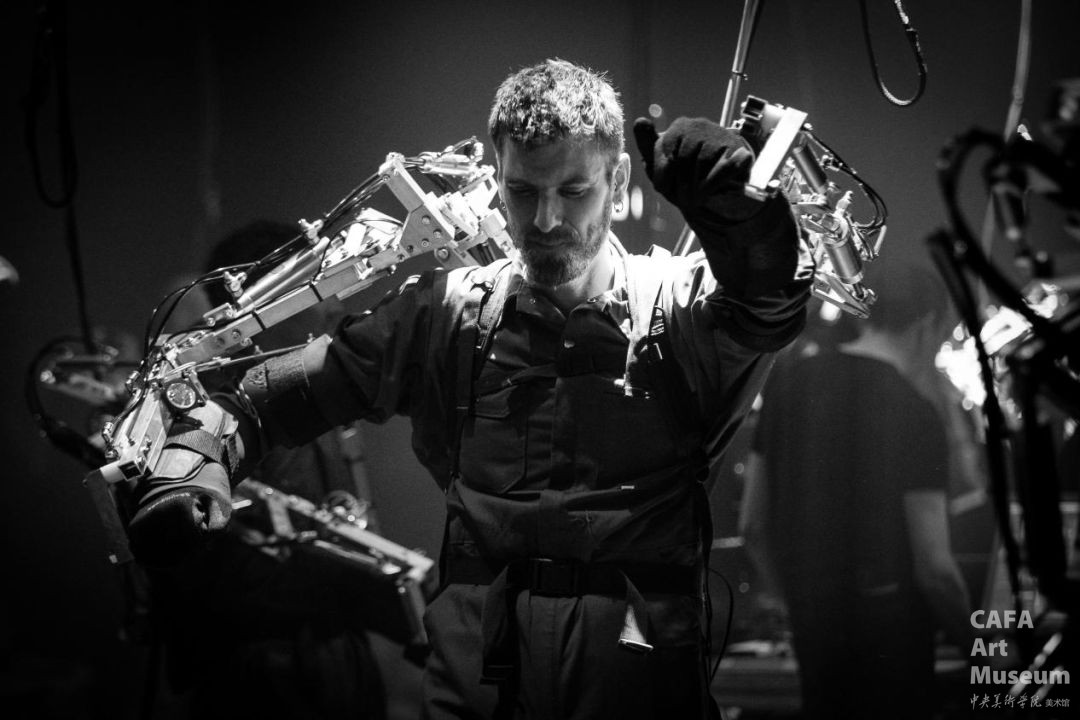
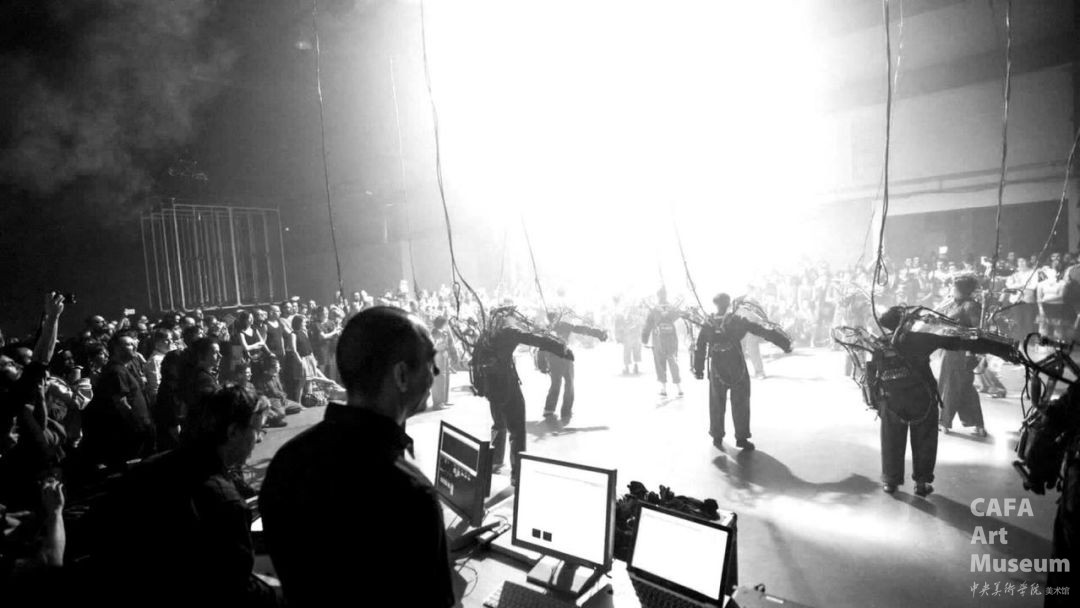
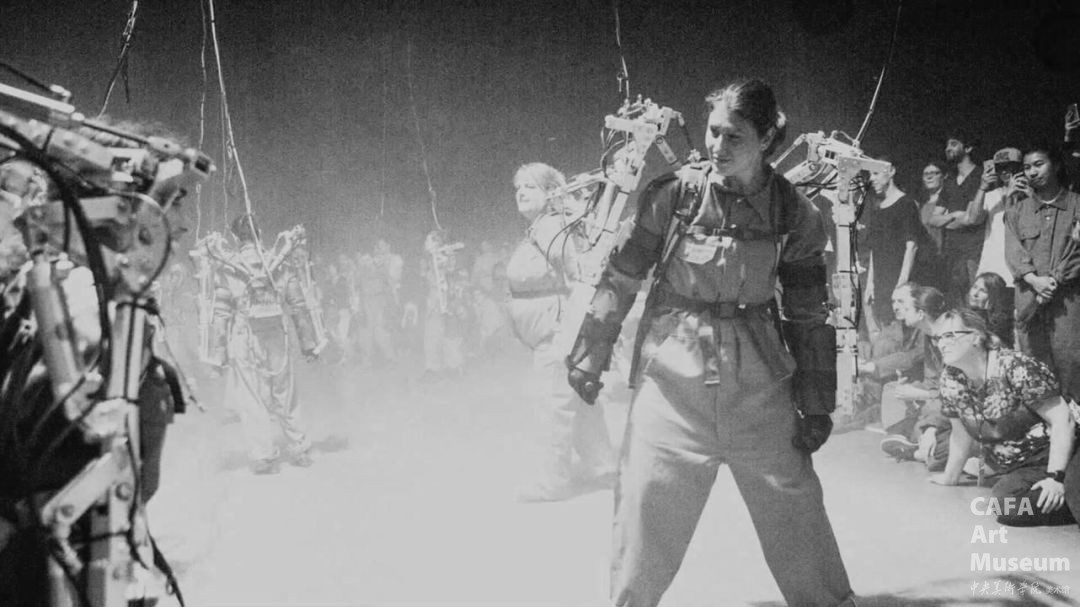
地狱(2015)
机器人表演项目

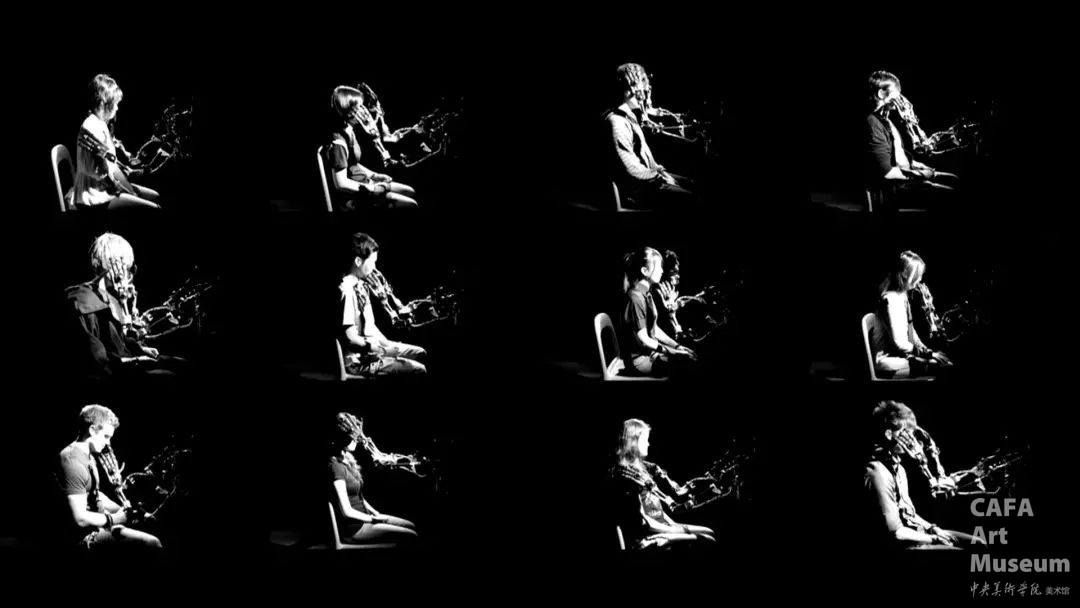
盲人机器人(2012)
触摸和交互机器人
Leonardo Art, Science and Technology Lecture Series
Making Experiences: Embodiment in Interactive and Robotic Arts.
Speaker: Louis-Philippe Demers
Date: 16.05.2019 Thursday
Time: 18:30-20:00
Language: English (with Chinese translation)
Venue: CAFA Art Museum
Co-organized by CAFA Visual Art Innovation Institute,CAFA Center for Art and Technology, CAFA Art Museum, Chronus Art Center
In collaboration with Leonardo / ISAST
About the Lecture
This talk reports on experiences with systems, spaces and robots in the context of my artistic explorations. I will address embodied experiences, looking at physicality as opposed to virtuality and at analog as opposed to digital computation in the realm of Digital/Electronic Media.
The far-reaching and often surprising implications of embodiment will be explored. This presentation will look at several levels of embodiment, from the ecological to the social, from the perceptual perspective of the audience to the perspective of the robotic agents itself.
Rooted in causality and animacy, the qualia of a robot behavior or is multi-layered, multi-faceted and it results from the simultaneous composition of cues ranging from the morphology to the very situatedness of the object in movement. Physical spaces and objects have a material existence whilst audiences share this very same world. Our body is not primarily in space: it is of it. This leads not only to tangible interfaces and immersive spaces but also creates a contributing cultural context as an integral part of the experiences.
We share and identify to biological, social and cultural experiences with performers on the stage. Phenomenologists and theatre theorists claim that these experiences are vastly grounded in the experiential body. What happens when we inject artificial constructions not only on the stage but also in tacitly human social scenarios?
In the course of these investigations, I started developing artworks entailing singular bodily experiences such as being touched by a robot (The Blind Robot), being controlled by an exoskeleton (Inferno), merging with machine (Devolution) and merging proprioception between machine and human (Repeat).
Having these radical encounters at the liminal space bordering man and machine, it forces audiences to (re)consider their human bodies and (re)visit their embodied experiences.
About the Speaker
Louis-Philippe Demers makes large-scale installations and performances. He participated in more than seventy artistic and stage productions and has built more than 375 machines. Demers' works have been featured at major venues such as Theatre de la Ville, Lille 2004, Expo 1992 and 2000, Sonambiente, ISEA, Siggraph and Sonar. He received six mentions and one distinction at Ars Electronica, the first prize of Vida 2.0, mentions at Vida 12.0 and 15.0, two jury recommendations at the Japan Media Arts Festival, the Interactive prize for Lightforms 98 and six prizes for Devolution including two Helpmann Awards. Demers holds a Ph.D. on robotic performances from Plymouth University. He was Professor at the Hochschule für Gestaltung Karlsruhe, affiliated to the world renowned Zentrum für Kunst und Medientechnologie (ZKM, Germany). Afterwards, Demers joined the Interaction and Entertainment Research Centre of the Nanyang Technological University (NTU) where he was also Associate Professor at the School of Art, Design and Media. Demers is now Professor of Creative Innovation and Director of the Creative Lab at the Queensland University of Technology.
Inferno(2015)
Robotic performance project
The Blind Robot(2012)
Touch and Interactive Robotics
